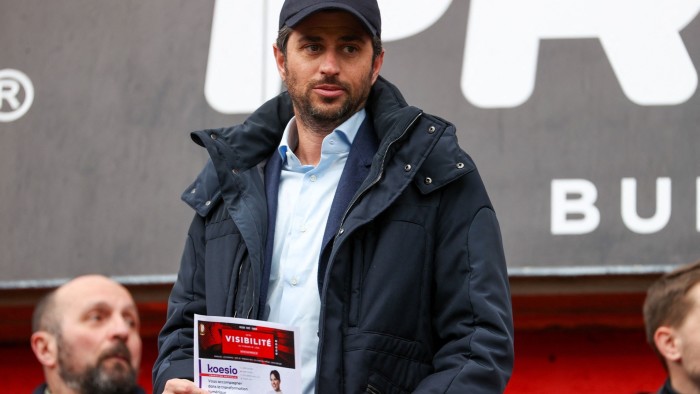Unlock the Editor’s Digest for free
Roula Khalaf, Editor of the FT, selects her favourite stories in this weekly newsletter.
Utah regulators have ordered three insurers to stop accepting new money, after losses on loans to Miami private equity firm 777 Partners left Sentinel Security Life Insurance and its reinsurers in a “hazardous financial condition”.
An emergency order published late on Monday by the Utah Insurance Department said the companies, part of New York’s A-Cap group, had insufficient capital to meet liabilities, in the latest fallout from a 777 investment spree in sports teams and airlines that culminated in a failed attempt to buy Premier League team Everton.
The action throws a spotlight on state insurance regulators responsible for overseeing almost $9tn of savings in a historically conservative industry that is increasingly funding the ambitions of private equity groups.
Such public measures can create strains on insurers, by stemming the inflow of cash and potentially unsettling policyholders, who can withdraw funds subject to penalties.
A person close to A-Cap said the company intended to contest the order. They attacked the analysis that underpinned it, and said an independent valuation by investment bank Houlihan Lokey contradicted the results and produced valuations consistent with A-Cap’s own.
A-Cap, which had $11.5bn of assets at the start of the year across five insurers and reinsurers backing life insurance and annuity policies for families across the US, had billions of dollars either lent to 777-linked businesses or ceded to its Bermuda-based reinsurer, 777 Re.
777 Re was plunged into crisis this year, leading insurers to take back their assets. A-Cap chief executive Kenneth King has spent much of 2024 fighting public concerns about his group’s financial strength, including filing a lawsuit against specialist insurance credit rating agency AM Best to stop publication of a ratings downgrade.
A-Cap owns Sentinel Security Life, Haymarket Insurance and Jazz Reinsurance in Utah, as well as Atlantic Coast Life Insurance and Southern Atlantic Re in South Carolina.
In April, regulators in both states moved to force those companies to reduce their exposure to 777, which had exceeded regulatory limits, in a process that allowed the insurers to continue to accept money from new customers.
Monday’s order from Utah said the financial condition of the three insurers there presented “an immediate and significant danger to the public health, safety, or welfare”, and that they must cease writing new business by the end of the month.
The order cited analysis of lending to 777 entities forecast to be significantly impaired, such as loans to the Canadian budget airline Flair where recoveries are expected to be “approximately zero to eleven cents on the dollar”. Bloomberg reported last week that the airline was attempting to raise $150mn of new senior debt as it restructures.
Miami-based 777 called in restructuring experts in May, and faces lawsuits that include civil fraud claims, all of which it has denied.
The firm attracted scrutiny over its prolonged failure to complete a takeover of Everton football club, a deal that fell apart this year, putting the spotlight on the way A-Cap’s insurers helped finance 777’s purchases of trophy sporting assets and football clubs from Genoa and Hertha Berlin in Europe to Vasco da Gama in Brazil.



